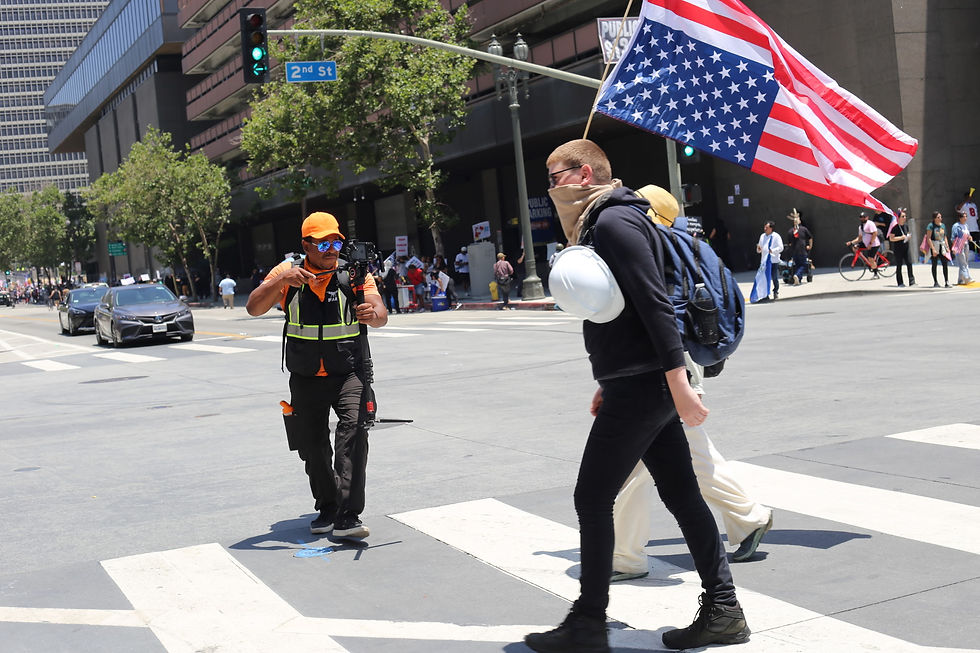Working on "The Cove": My Journey with an Oscar-Winning Documentary
- dfflip
- May 25, 2025
- 4 min read
Updated: Jun 4, 2025
My journey with the Oscar-winning documentary The Cove has been nothing short of transformative. As a freelance editor and cinematographer, I had the privilege of contributing to a project that not only garnered critical acclaim but also sparked global conversations about marine conservation. In this post, I will share my experiences and insights while working on the film, which I hope will resonate with potential investors and collaborators in the documentary filmmaking industry.
Discovering My Passion for Documentary Filmmaking
It all started with a connection through Brook Aitken, who introduced me to the visionary director Louie Psihoyos. The moment I met Louie, I could sense his passion for the ocean and his commitment to raising awareness about the alarming practices affecting marine life. His vision for The Cove was clear – to unveil the shocking truth behind dolphin hunting in Taiji, Japan, and to advocate for change.

Expanding My Role: From Editor to Cinematographer
Initially hired as a freelance editor, my role began to evolve as the project progressed. The significance of my contributions grew when I was tasked with cinematography for the International Whaling Commission meeting in Alaska. Capturing those moments became crucial in establishing the film's narrative and the urgency of the conservation issues at hand.
During these shoots, I learned the importance of being adaptable. The documentary world often demands flexibility. Being able to pivot roles allowed me to deepen my connections with the storyline and the team.
Memorable Encounters: Surfers and Advocates
One of the standout moments during the filming process was conducting a key interview with a well-known professional surfer. This casual yet profound exchange highlighted the interconnectedness of ocean sports and environmental conservation. Surfers uniquely act as environmental stewards, and their insights proved invaluable in shaping the documentary's message.
My lunch with Ric O'Barry, the former dolphin trainer turned activist, was another unforgettable experience. He shared his story passionately, recounting his transformation from being part of the entertainment industry to becoming one of its fiercest critics. The authenticity of his journey resonated deeply, and it was clear that his experiences were critical for us to capture.

The Editing Process: Crafting a Powerful Narrative
One of my pivotal responsibilities was editing the "killing Cove" sequence. This segment of the film was particularly challenging due to the sensitive subject matter. However, the creative process allowed me to develop compelling transitions that conveyed the gravity of the events. For instance, the haunting transition showing the water turning red became emblematic of the film's overarching theme of the brutality faced by dolphins.
Editing requires not just technical skills but also a deep understanding of storytelling. Each cut and frame must serve the narrative and evoke a strong emotional response from the audience. It was a humbling experience to contribute to such impactful storytelling, underscoring the reason we create these documentaries in the first place.
A Critical Confrontation Scene: A World Stage
Compiling crucial footage for Louie to use in a confrontation scene in Taiji, Japan, was one of the most exciting parts of my role. This scene was critical to the film’s narrative, showcasing the tension between activists and the fishermen. I witnessed firsthand how our captured footage had the potential to sway public opinion and promote conservation efforts on a global scale.
Working with Louie during this time was enlightening. His emotional investment in the film and advocacy for the dolphins taught me about the weight that documentaries carry. It’s not just about storytelling; it's about inciting change.

Reflections on Achievement: The Oscars Experience
I was immensely proud to be credited with "additional editing" and "additional camera" work for The Cove. Watching the film win an Academy Award was a monumental moment for me and the entire team. It symbolized not just recognition of our hard work but also the validation of a message that needed to be heard around the world.
The Oscars night became a moment for reflection. Realizing that our footage could influence policies and perceptions about marine life conservation reinforced the significance of visual storytelling. It highlighted the power of documentaries to shine a light on issues often ignored by larger narratives.
Building the Future: Opportunities Ahead
As I reflect on my journey with The Cove, I see immense potential for growth in the documentary filmmaking space. The global impact of this film has opened doors to various opportunities and collaborations that I would love to explore.
Strategy for Future Productions
I invite potential investors, production companies, and collaborators to connect with me. The lessons learned from The Cove can be instrumental in shaping future projects that continue to tell compelling stories and advocate for meaningful causes.
Together, we can harness the power of visual storytelling to address pressing global issues. If you're interested in discussing potential collaborations or investment opportunities in future documentary projects, please reach out. Let's make a difference together!
Moreover, the importance of community and collaboration in documentary filmmaking cannot be overstated. By working together, we not only enrich our projects but also amplify the voices of those who may not have a platform otherwise.
Bringing together various perspectives can create a richer narrative tapestry. Each unique voice can add depth to the stories we want to tell. To truly advocate for change, we must work as a united front, sharing our resources and knowledge.
By leveraging our connections and skills, we can create impactful documentaries that resonate with audiences worldwide. I am excited about the possibilities that lie ahead and the chance to collaborate with like-minded individuals who are passionate about conservation and storytelling.
Let's embark on this journey together and use our collective talents to shine a light on the critical issues facing our planet today. Together, we can make a lasting impact.





Comments